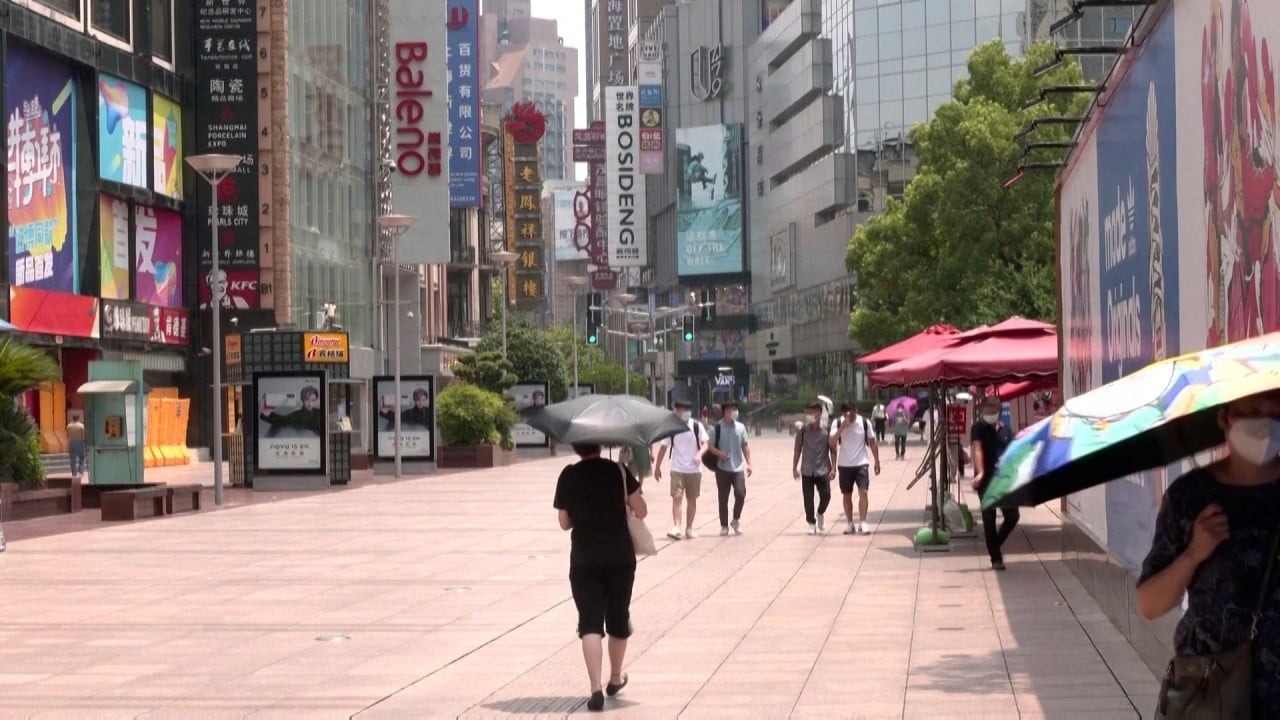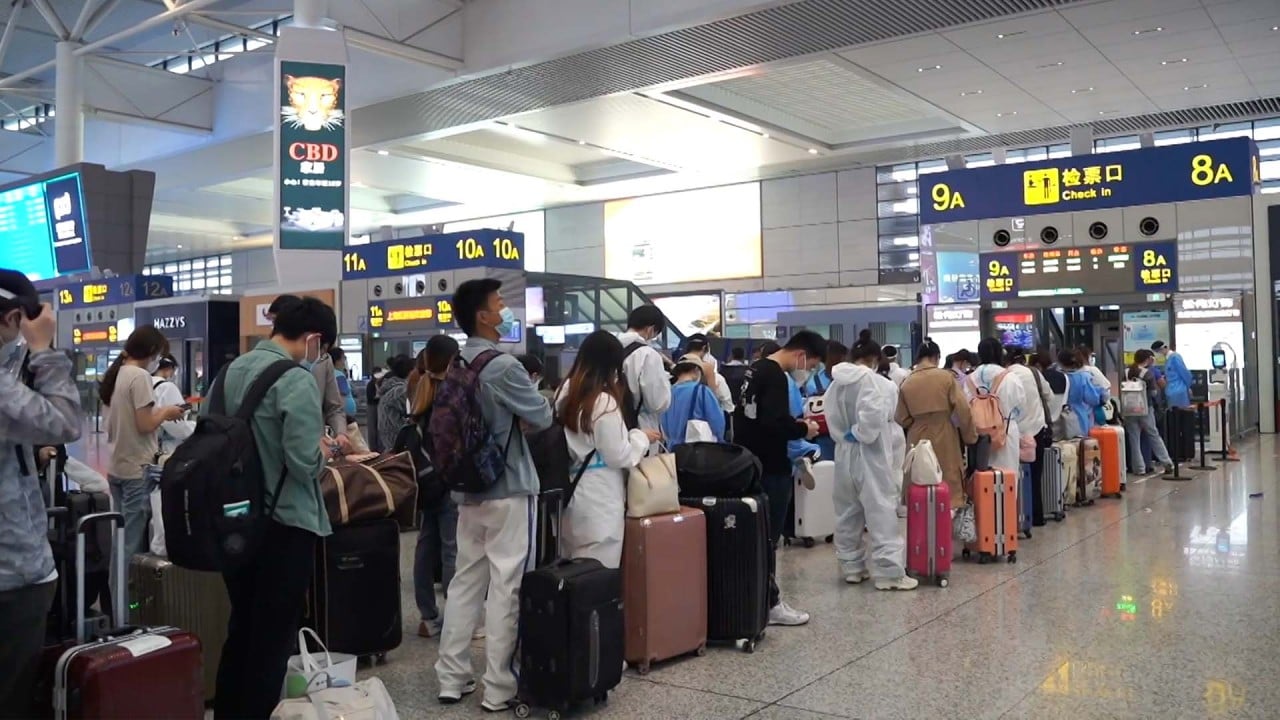
Hong Kong stocks slip as traders dump Chinese developers amid growing distress while Alibaba, Tencent sustain tech advance
- An index tracking mainland property developers has logged two weeks of losses totalling 27 per cent
- Distressed developers from Fantasia Group to Sunac and Guangzhou R&F have struggled to repay creditors amid sliding home sales and loss of access to funding
The Hang Seng Index retreated 0.2 per cent to 20,751.22 at the close of Thursday trading. The index has weakened in four straight days, the longest stretch in two months. The Hang Seng Tech Index added 0.9 per cent, while the Shanghai Composite Index was little changed.
Country Garden Holdings fell 1.4 per cent to HK$3.62 and Longfor Group tumbled 4.8 per cent to HK$29.85. China Resources Land lost 3.3 per cent to HK$33.95, while China Merchants Bank also tumbled 4 per cent to HK$42.
The Hang Seng Mainland Properties Index has failed to notch a gain in the past two weeks of trading, losing a total of 27 per cent. Buyers in at least 100 real estate projects are threatening to stop servicing their mortgages on homes abandoned by developers, mainland Chinese media reported, citing filings and petitions.
“The news will continue to drag down developers’ share prices in near term until policy makers step in to solve the issue,” said Raymond Cheng, head of China and Hong Kong research at CGS-CIMB Securities. “Regulators have to react promptly to prevent a contagion.”
Chinese developers from Fantasia Group to Sunac and Guangzhou R&F Properties have struggled to repay creditors as home sales slumped and Beijing’s “three red lines” policy shut weak borrowers from the loan and credit markets at home and abroad, adding to mounting default cases.
Limiting losses, JD.com advanced 2.7 per cent to HK$244 and Alibaba Group added 1.2 per cent to HK$108.70. Meituan gained 1.1 per cent to HK$182.50, while BYD appreciated 5.5 per cent to HK$283.
“Regulatory pressure is easing and it is a better situation for Chinese tech stocks than last year,” said Dickie Wong, executive director of research at Kingston Securities. After the Shanghai lockdown, “almost every sector on the mainland has their earnings improving,” he added.
Losses this week came as a resurgence of Covid-19 cases on the mainland and tech regulatory penalties sapped optimism. The Hang Seng Index’s 4.5 per cent loss this week has erased US$132 billion of market value, on course for the biggest weekly pullback since early May.
Tianqi Lithium retreated 3.7 per cent to HK$79 on its second day of trading, after closing unchanged in its Hong Kong market debut on Wednesday. Its Shenzhen-listed stock fell 2.4 per cent to 125.55 yuan.
Major Asian markets were mixed, with Japanese shares gaining 0.6 per cent. Australian stocks added 0.4 per cent, while South Korean equities lost 0.3 per cent. US stocks fell overnight, after consumer prices rose to a four-decade high in June and stoking concerns about a more aggressive rate increase later this month.



